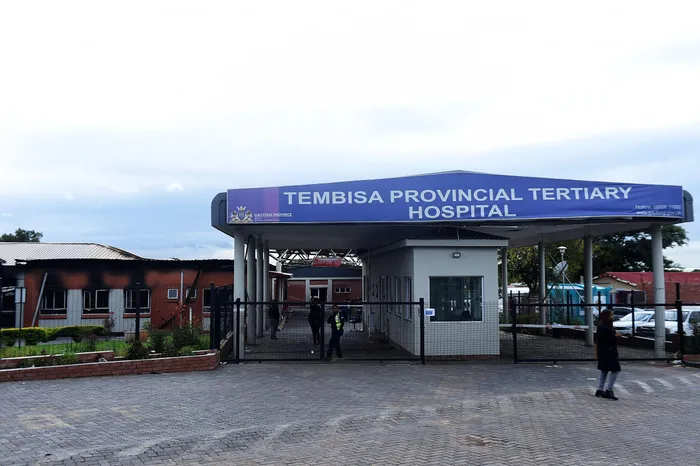
ActionSA has expressed anger at news that the Health Department has still not blacklisted suppliers involved in the R2 billion Tembisa Hospital scandal.
Image: Itumeleng English / Independent Newspapers
The Health Department is stepping up its efforts to address the R2 billion looting scandal at Tembisa Hospital. Following a damning interim report by the Special Investigating Unit (SIU), it has officially requested the SIU to expedite the process of blacklisting the 207 companies implicated in the web of corruption and fraud.
This scandal, which has reverberated through state healthcare, involved a complex network of three major syndicates and 4,501 irregular purchase orders stemming from the hospital's procurement processes. With the involvement of several service providers under scrutiny, concerns are mounting about why none of these suppliers have yet faced consequences.
Health Minister Aaron Motsoaledi confirmed during a recent exchange with ActionSA MP Alan Beesley that, while the SIU is compiling a list of implicated companies for the National Treasury, the blacklisting of these suppliers remains an unresolved issue. “The National Health Council (NHC) convened after the SIU's report, urging the SIU to take action on blacklisting. However, the process falls under the purview of the National Treasury,” Motsoaledi stated, highlighting the bureaucratic complexity that could delay necessary action.
Motsoaledi’s comments about the limited authority of the Health Department have raised eyebrows, especially as all eyes remain on the myriad individuals and businesses who allegedly profited from the siphoning of funds intended for essential health services. “This means that the individuals and companies who siphoned off billions meant for public health services to buy palatial mansions and Lamborghinis are still able to do business with the state,” complained Beesley.
Despite calls for immediate action, it appears that little progress has been made. According to the Standing Committee on Public Accounts, while 467 entities were flagged to be added to a Restricted Supplier Register, only one has been placed on the list thus far. Beesley described this as a concerning indicator of the efficacy of accountability measures within government systems.
In response to the ongoing frustrations, ActionSA has formally lodged a complaint with the Public Protector, urging a thorough investigation into what it describes as systemic maladministration. Beesley affirmed, “As a constructive opposition party, we refuse to sit idly by while corrupt suppliers continue to do business with the government.” Alongside this move, ActionSA is preparing to introduce new legislation to empower the National Treasury to enforce swifter actions against suppliers implicated in corruption.
In an effort to bolster oversight, the NHC plans to host a workshop later this month dedicated to discussing enhanced strategies for safeguarding the integrity of procurement processes at hospitals. This initiative signals an urgent need for stricter protocols to prevent further abuses of the public trust.
Related Topics: